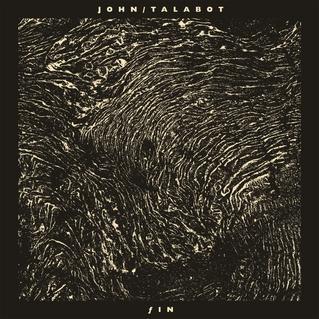
in
When the Irish techno producer Donnacha Costello released his debut album, Growing Up in Public, its title crystallized a key dilemma of any emerging artist: At what point do you decide you're ready to venture out of the bedroom? That was back in 2000, well before the internet had shifted into high gear; since then, the coming-out process has gotten only harder.
Barcelona's John Talabot and his first album, IN, make for an interesting case study of the musical debutant: This is actually the artist's second time around. Under a different alias, as a resident DJ at one of Barcelona's techno institutions, he began his recording career in the mid 2000s, making punchy, melodic dance music with a clear debt to labels such as BPitch Control and Border Community. A few years later, around the same time that Barcelona's techno scene and the styles that fueled it began to go stale, his own productions began to shift. He eased into a mid-tempo chug and set aside buzzing synthesizers in favor of sun-bleached samples, trading neon fizz for dandelion fluff. Like a company de-listing itself from the stock market, the local fixture took himself private, assuming a new alias and wiping the slate clean.
It was a smart move. In the past two years, Talabot has become an exemplar of a new breed of producers working at the intersection of deep house, disco, and indie pop, and he has carved out his own niche somewhere between the slow-motion theatrics of artists such as Mark E and Tensnake, the globe-trotting jewel tones of Four Tet and Caribou, and the psych-pop rush of Animal Collective and Delorean. Having interviewed him a few times, I don't think there's a calculating bone in the-artist-currently-known-as-John-Talabot's body, but he has nevertheless benefited from being in the right place at the right time. His slow tempos, supersaturated colors, and tropical accents fit right in with the woozy, humid dance music that's currently in vogue, and he has found himself in esteemed company-- remixing the xx, recruiting Glasser's Cameron Mesirow for guest vocals, and releasing on Young Turks. He's currently on tour in Australia with SBTRKT, another indicator that his star is on the rise.
Ironically, this all means that, his quasi-anonymity aside, Talabot finds himself growing up in public all over again as he graduates from singles and remixes to the full-length album form. Perhaps it's those raised stakes that make IN feel like such a triumph. Across the album's 11 tracks, Talabot builds upon his distinctive sound-- bursting with color, nostalgic but never retro, easy-going yet slightly unhinged-- without repeating himself.
Talabot's early singles tended to follow a single trajectory, beginning with a bed of chunky percussion and then piling on loops of acoustic guitars, Philly strings, and soaring, pitched-up voices, usually culminating in a swollen, almost over-the-top climax. He hasn't entirely abandoned that approach, but he hasn't remained shackled to it, partly because he has shortened his track times considerably: Where his singles and remixes routinely ran seven, eight, even nine minutes, most of IN's tracks come in around the four-minute mark, giving him the opportunity to experiment with more modest ideas that say their piece and move on.
The album's first three songs show off his range. The opening "Depak Ine"-- at seven-and-a-half minutes, it's the LP's longest cut-- is disco by way of Depeche Mode, with stabbing synths, eerie vocal samples, and an inexplicable chorus of croaking frogs. (The title resembles the brand name of a mood-stabilizing drug, which might explain the shift from minor to major halfway through; perhaps the frogs denote side effects?) "Destiny", a co-production with Madrid's Pional, is one of the album's obvious standouts, with beautifully harmonized vocals over lilting Caribbean chimes and a cozy, reassuring chord progression. Then, like a kind of palate cleanser, the three-minute "El Oeste" is a sleek little miniature of melting synthesizers, scraggly drum machines and dub delay that gradually swells into a folky, Boards of Canada-gone-house vibe.
A few times, Talabot tries to recreate the sensation that he nailed on "Sunshine", an early hit that was as subtle as an ice-cream headache. With its stabbing chords and sped-up vocal loops, "When the Past Was Present" shows Talabot at his excessive best-- buzzing and slightly out of tune, with everything pushed into the red and teetering on the verge of collapse. "Journeys", the album's only misstep, goes for the same vibe, but there's something clunky about its construction, and the vocals, from Delorean's Ekhi Lopetegi, can be distractingly pitchy.
A kind of happy melancholy informs most of the album, but that unity of mood doesn't get in the way of the songs' potential to surprise. As many times as I listen, I keep discovering new sounds, phrases, and even entire songs that had previously passed me by, such as "Estiu", a demure, three-minute funk bumper that sounds like Dm-Funk on Percoset, or "Last Land", whose breakbeat sounds based on the same sample used in Mr. Cheeks' 2001 club-rap hit "Lights, Camera, Action!".
IN saves its best song for last: "So Will Be Now...", another Pional co-production, which loops sampled vocals into a dreamy haze before digging into a sparse, deep-house groove. It's restrained, but there's real power there. A friend raved to me about how the song moved the dance floor at Berlin's Panorama Bar one Sunday morning. On your home speakers, it's as comforting as a lullaby, but played loud, apparently, those stark finger snaps and swooning coos are a call to collective ecstasy. Those contradictory qualities inform the whole record as it luxuriates in the space between private and public, just as its ambiguous title blurs the line between ends and means.
